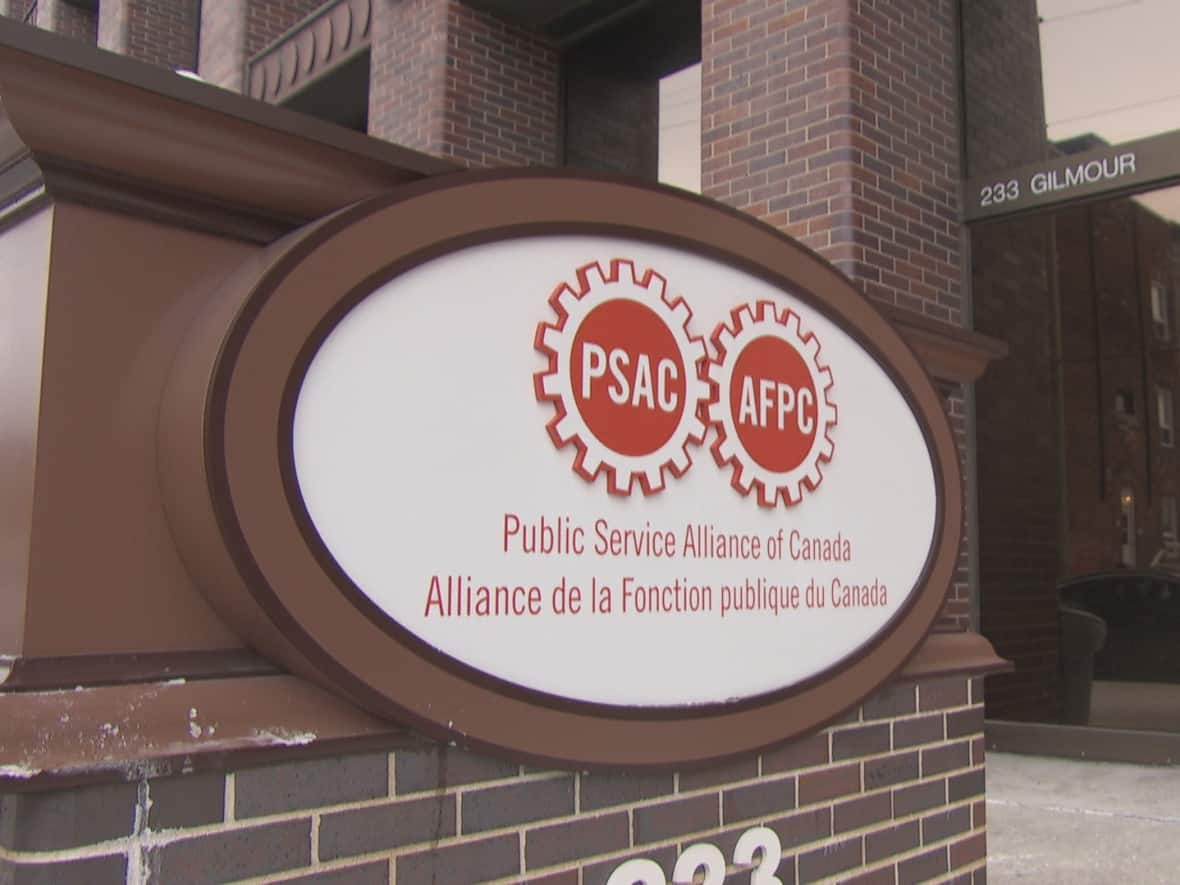Strike votes planned for 120,000 more federal public servants

The Public Service Alliance of Canada (PSAC) has announced it will hold strike votes for another 120,000 federal public servants, just two weeks after taking the same step for 35,000 taxation employees.
The union says talks have broken down with the Treasury Board for four more bargaining groups over the same issue: proposed wage increases that are outstripped by the rate of inflation.
Among the four latest groups is program and administrative services, the largest bargaining unit in the core federal public service. It counts nearly 100,000 employees who administer programs, do communications work, clerical functions, data processing and more.
Strike votes will be held from Feb. 22 to April 19 for them, as well as for operational employees such as firefighters, tradespeople and ship crews, the technical services group, and the education and library science group.
The collective agreements for all four groups expired in the summer of 2021.
PSAC's national president said the union is not asking for wages to increase at the rate of inflation, but at 4.5 per cent for 2021, 2022, and 2023.
"We don't think that that's crazy talk or anything like that," said Chris Aylward. "We think that's very reasonable."
WATCH | The national president rounds up talks so far:
In a statement, the Treasury Board said the government is "disappointed" PSAC has decided to call a strike vote and that there "is lots of room to reach a fair and reasonable agreement for public servants."
"We have already signed an agreement with another bargaining agent that includes wage increases of more than 10 per cent over four years," the statement said.
"Such increases align with other comparable public service collective agreements being established elsewhere in Canada. We are confident that similar outcomes can be reached for other employees at the bargaining table."
Wage increases a main issue
Treasury Board last fall offered to increase wages by 2.06 per cent on average over four years, up from an average of 1.7 per cent per year.
PSAC had declared an impasse in negotiations last May, when it called the 1.7 per cent "insulting" and "entirely out of touch with record-high inflation."
That led to mediation and public interest commissions being struck at the Federal Public Sector Labour Relations and Employment Board, which held hearings in November and December.
Once those non-binding recommendations are reported, PSAC said it can be in a position to strike if members vote in favour.
The two sides have been exchanging a salvo of accusations in recent weeks.
On Jan. 13, the Treasury Board filed a complaint with the labour board, arguing PSAC was "bargaining in bad faith." It said PSAC had "flooded the bargaining tables with costly proposals."
The union quickly rebutted and called that a stalling tactic. Over the weekend, it suggested that getting to a fair contract with the Treasury Board would only come about with a strong strike mandate from union members.


